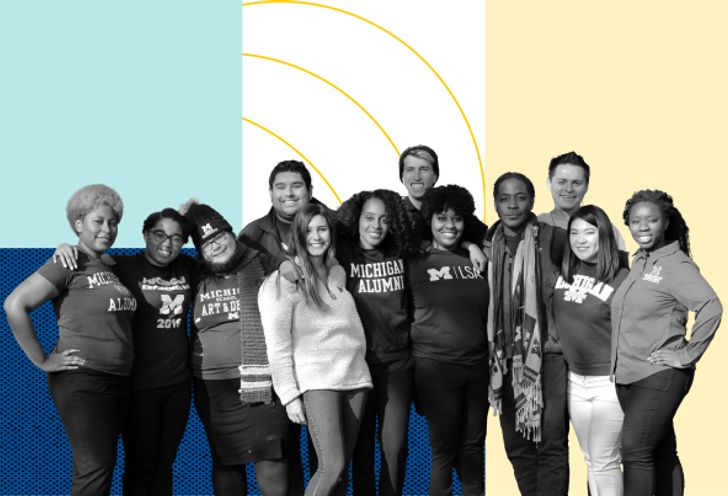DEI 2.0 Plans for Goal: Process
Review these Campuswide Action Items and Unit Plan Spotlights to learn more about how these plans will be implemented across U-M.
Process Highlights
We are committed to ensuring that our campus is a place where differences of all sorts—racial, ethnic, cultural, religious, socioeconomic and political among them—are welcomed. As a community, we aspire to make this university a place where divergent perspectives are respectfully heard and where every individual experiences a deep sense of belonging and inclusion. At the same time, we recognize that differences arise not only from visible identities, but also from less visible characteristics and experiences that may contribute to the dynamics of inclusion or exclusion.
Therefore, it is only by creating a vibrant climate of inclusiveness and working actively to challenge and respond to bias, harassment, discrimination and intolerance that we can effectively leverage the resources of diversity to advance our collective capabilities.
To determine appropriate actions steps, planning leads in every campus unit asked questions such as:
- To what degree are our schools, colleges and units places where all are welcomed?
- What happens when various community members express their opinions and needs?
- To what extent do students, faculty, and/or staff perceive that their ideas are given serious consideration?
- What contributes to individuals in our institution feeling a sense of belonging or, conversely, a sense of exclusion or isolation?
The answers to these questions were unique to each of the schools, colleges and units and reflected their respective cultures. As a result, the collective plans include dozens of climate-building activities and a wide variety of initiatives—from creating effective systems for reporting bias to establishing dedicated DEI committees and/or roles with new levels of accountability.
In addition, more than 90 percent of all plans include climate-related training, and nearly 80 percent cite the need to conduct ongoing assessments in order to more fully understand climate issues in local school, college and unit communities.


